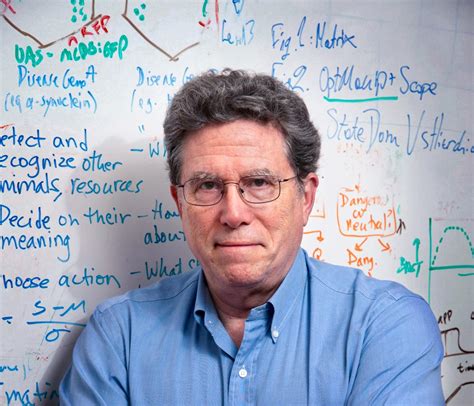A Quote by Daniel Levitin
The history of science and culture is filled with stories of how many of the greatest scientific and artistic discoveries occurred while the creator was not thinking about what he was working on, not consciously anyway - the daydreaming mode solved the problem for him, and the answer appeared suddenly as a stroke of insight.
Related Quotes
What is an artistic picture? An artistic picture is very simple. The creator is not the producer. The creator is not the star. The creator is the director, the person who realizes the picture, like a poet, like an artist. The creator of the picture is free to do whatever he wants, how he wants to do it. That is an artistic picture.
Many people don’t realize the extent to which stories influence our behavior and even shape our culture. Think about how Bible stories teach the fundamentals of religion and rules of conduct. Think of the fables and parables that molded your values. Think of how stories about your national, cultural or family history have shaped your attitudes about yourself and others.
Science and religion are not antagonists. On the contrary, they are sisters. While science tries to learn more about the creation, religion tries to better understand the Creator. While through science man tries to harness the forces of nature around him, through religion he tries to harness the force of nature within him.
There are two things I enjoy most about my work. First, I get to work with interesting and enthusiastic people who are also fired up about science. Second, every once in a while I have moments in which I suddenly understand the solution to a problem that I've been working on - those are great moments.
Our own existence once presented the greatest of all mysteries, but ... it is a mystery no longer because it is solved. Darwin and Wallace solved it ... I was surprised that so many people seemed not only unaware of the elegant and beautiful solution to this deepest of problems but, incredibly, in many cases actually unaware that there was a problem in the first place!
Unfortunately, philosophers of science usually regard scientific realism and scientific anti-realism as monistic doctrines. The assumption is that there is one goal of all scientific inference - finding propositions that are true, or finding propositions that are predictively accurate. In fact, there are multiple goals. Sometimes realism is the right interpretation of a scientific problem, while at other times instrumentalism is.

































